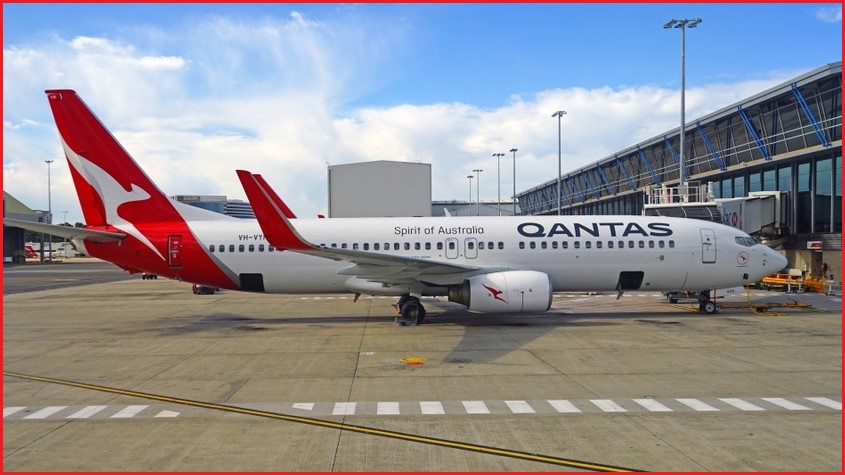Qantas continued to sell tickets online for flights it had already cancelled, the Australian Competition and Consumer Commission (ACCC) alleges, in announcing it has launched action against the airline in the Federal Court of Australia.
The ACCC alleges Australia’s largest domestic airline operator Qantas Airways engaged in “false, misleading or deceptive conduct” by advertising tickets for more than 8,000 flights it had already cancelled but not removed for sale.
For more than 8,000 flights scheduled to depart between May and July 2022, the ACCC alleges Qantas continued selling tickets on its website.
These online sales allegedly persisted for an average of more than two weeks – in some case up to 47 days – after the cancellation of the flights.
“The ACCC has conducted a detailed investigation into Qantas’ flight cancellation practices,” ACCC Chair Gina Cass-Gottlieb said.
“As a result, we have commenced these proceedings alleging that Qantas continued selling tickets for thousands of cancelled flights, likely affecting the travel plans of tens of thousands of people.”
Speaking to the ABC this morning, Cass-Gottlieb made it clear that the ACCC is not taking action because the airline cancelled flights, but because it failed to notify consumers.
She added that she hopes the court imposes a fine that acts as a deterrent, and not an amount that can simply be “just a cost of doing business”.
The ACCC alleges that for nearly 70 per cent of cancelled flights, Qantas either continued to sell tickets on its website or delayed informing existing ticketholders their flight was cancelled for two days or more – in some cases, both.
Qantas also faces allegations that for more than 10,000 flights scheduled to depart in the same period, Qantas neglected to notify existing ticketholders their flights had been cancelled for an average of about 18 days – sometimes up to 48 days.
A key point made during the allegations is that Qantas reportedly did not update its “Manage Booking” web page for ticketholders to reflect the cancellation – which, if true, may have impaired the ability for customers to adjust their travel plans in a reasonable timeframe.
“We allege that Qantas’ conduct in continuing to sell tickets to cancelled flights, and not updating ticketholders about cancelled flights, left customers with less time to make alternative arrangements and may have led to them paying higher prices to fly at a particular time not knowing that flight had already been cancelled,” Cass-Gottlieb said.
“There are vast distances between Australia’s major cities.
“Reliable air travel is essential for many consumers in Australia who are seeking to visit loved ones, take holidays, grow their businesses or connect with colleagues.
“Cancelled flights can result in significant financial, logistical and emotional impacts for consumers,” she added.
In its investigation, the ACCC engaged with impacted consumers and carried out detailed data analysis – ultimately identifying Qantas cancelled almost 1 in 4 flights in the period from May to July 2022, with about 15,000 out of 66,000 domestic and international flights from airports in all states and mainland territories in Qantas’ published schedule being cancelled.
In an example of the alleged conduct, one consumer was provided with a replacement flight only a day before their initial departure date, which was only communicated by the Qantas app.
This meant the consumer had to change connecting flights and endure a 15-hour layover in Los Angeles, leaving them $600 out of pocket.
Another example, saw Qantas sell 21 tickets from Sydney to San Francisco after it had already cancelled the flight, with the last ticket being sold 40 days after cancellation.
“Qantas takes these allegations by the ACCC seriously,” said Qantas in a statement provided to Information Age.
“It’s important to note that the period examined by the ACCC between May and July 2022 was a time of unprecedented upheaval for the entire airline industry,” said Qantas.
“All airlines were experiencing well-publicised issues from a very challenging restart, with ongoing border uncertainty, industry wide staff shortages and fleet availability causing a lot of disruption.
“We will examine the details of the ACCC’s allegations and respond to them in full in court.”
The global COVID-19 pandemic saw Australia record its worst flight cancellation and performance rate since records began – with only 63 per cent of Qantas, Virgin, Jetstar and Rex Airlines flights arriving on time in June of 2022, and more than 1 in 20 flights being cancelled.
The ACCC – which monitored prices, costs and profits of Australia’s major domestic airlines under a direction from the Federal Government during the pandemic and the subsequent industry recovery period – said it continues to receive more complaints about Qantas than about any other business.
“Last year alone the ACCC received more than 1,300 complaints about Qantas cancellations, accounting for half of all complaints about Qantas reported to the ACCC,” said the ACCC.
The ACCC is seeking orders including penalties, injunctions, declarations, and costs.
For corporations, the maximum penalties for each breach of the Australian Consumer Law before 9 November 2022 is the greater of $10 million, three times the total benefits that have been obtained and are reasonably attributable, or if the total value of the benefits cannot be determined, 10 per cent of the corporation's annual turnover.
Earlier this week, Qantas CEO Alan Joyce revealed before a senate committee hearing that the airline is still holding at least $470 million in customer flight credits.
Last week Qantas announced a pre-tax profit of $2.5 billion.










